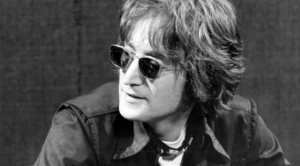
John Lennon – Nobody Loves You When You’re Down and Out: A Cynical Look at Human Nature
In the realm of rock and roll, John Lennon stands as an iconic figure, his songwriting and musicianship shaping the landscape of popular music for decades. Among his vast repertoire of hits, “Nobody Loves You When You’re Down and Out” stands out as a cynical and introspective ballad, offering a stark commentary on the fickle nature of human relationships and the isolating nature of despair.
Released in 1974 as part of his album Walls and Bridges, “Nobody Loves You When You’re Down and Out” marked a period of personal and artistic turmoil for Lennon. Fresh off the breakup of The Beatles and navigating the complexities of his new relationship with Yoko Ono, Lennon poured his disillusionment and cynicism into this song’s lyrics.
The song opens with a somber piano melody, setting the stage for Lennon’s weary vocals as he delivers the song’s opening lines, “Nobody loves you when you’re down and out / Nobody loves you when you’re in a shout.” This blunt declaration establishes the song’s central theme: the tendency of people to distance themselves from those experiencing hardship or emotional distress.
Lennon’s lyrics paint a vivid picture of the protagonist’s isolation, surrounded by indifferent individuals who offer no support or empathy. The chorus further emphasizes this sentiment, with Lennon repeating, “Nobody loves you when you’re down and out / Nobody loves you when you’re in a shout.”
The song’s bridge offers a glimmer of hope, with Lennon singing, “But I’ll be back again / When the sun shines / And I’ll be back again / To find out who’s been kind.” However, this fleeting moment of optimism is quickly overshadowed by the song’s bleak conclusion, as Lennon repeats the chorus, leaving the listener with a sense of despair and disillusionment.
“Nobody Loves You When You’re Down and Out” has been praised for its raw honesty and unflinching portrayal of human nature. Lennon’s willingness to confront the darker aspects of human behavior has earned the song a place among his most enduring and thought-provoking works.
The song’s message continues to resonate with listeners today, offering a reminder of the importance of empathy and compassion, particularly during times of personal struggle. Lennon’s words serve as a challenge to confront our own biases and extend support to those in need, even when they are at their lowest point.
Video
Here are some additional details about the song:
- The song was written and performed by John Lennon.
- It was released in 1974 as part of the album Walls and Bridges.
- The song has been covered by numerous artists, including Elton John, Eric Clapton, and Tom Petty.